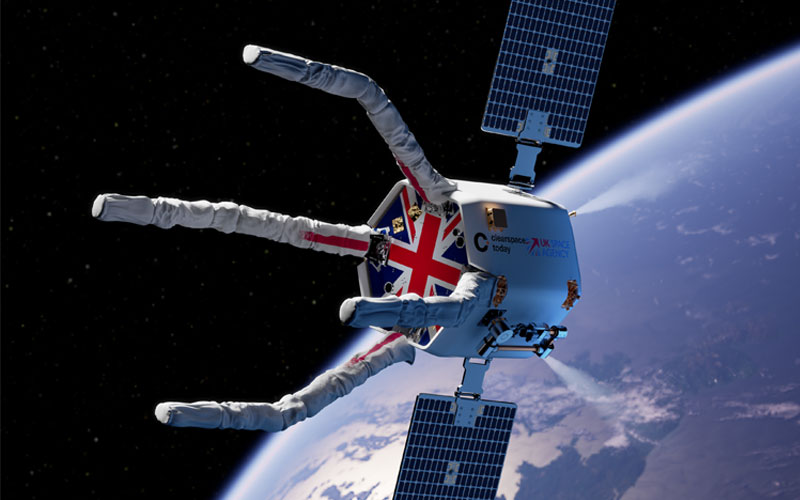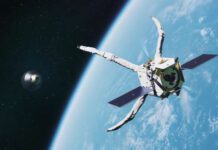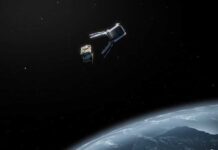
Swiss in-orbit servicing and debris removal company ClearSpace has successfully completed the Preliminary Design Review for its CLEAR mission.
ClearSpace was founded in 2018 as a spin-off of the Swiss Federal Institute of Technology Lausanne. In December 2019, the European Space Agency selected a ClearSpace-led consortium to conduct an orbital debris removal mission targeting an old Vega payload adaptor. This mission, which is called ClearSpace-1, is expected to be launched in 2026.
In October 2021, the UK Space Agency awarded ClearSpace a contract to perform a feasibility study for CLEAR, a mission designed to remove two defunct “washing-machine-sized” UK satellites from orbit. Following the completion of the feasibility study, ClearSpace received a £2.2 million contract to proceed with the mission’s design phase.
ClearSpace announced in June 2023 that it had successfully completed the CLEAR mission’s System Requirements Review. When this stage of the mission design process was completed, the company projected that the Preliminary Design Review would be completed by the end of 2023.
On 19 April 2024, the company announced that it had successfully completed the mission’s Preliminary Design Review. This phase of the design process included the development of an early prototype of the mission’s hardware that featured all of its core technologies, including a robotic arm. The arm was designed and refined over a year through multiple iterations.
Like ClearSpace-1, the spacecraft that is being designed for CLEAR will feature four robotic arms that will be used to capture the target satellites in orbit. Once captured, the CLEAR spacecraft will drag the target satellites into a destruction orbit that will see all three spacecraft burn up in the atmosphere.



